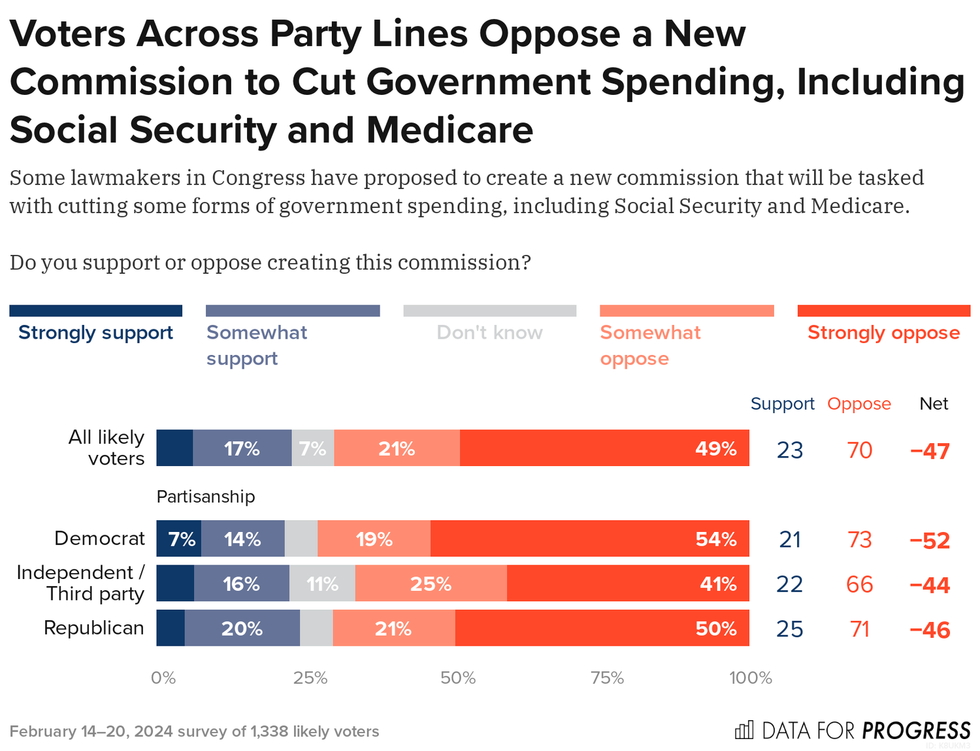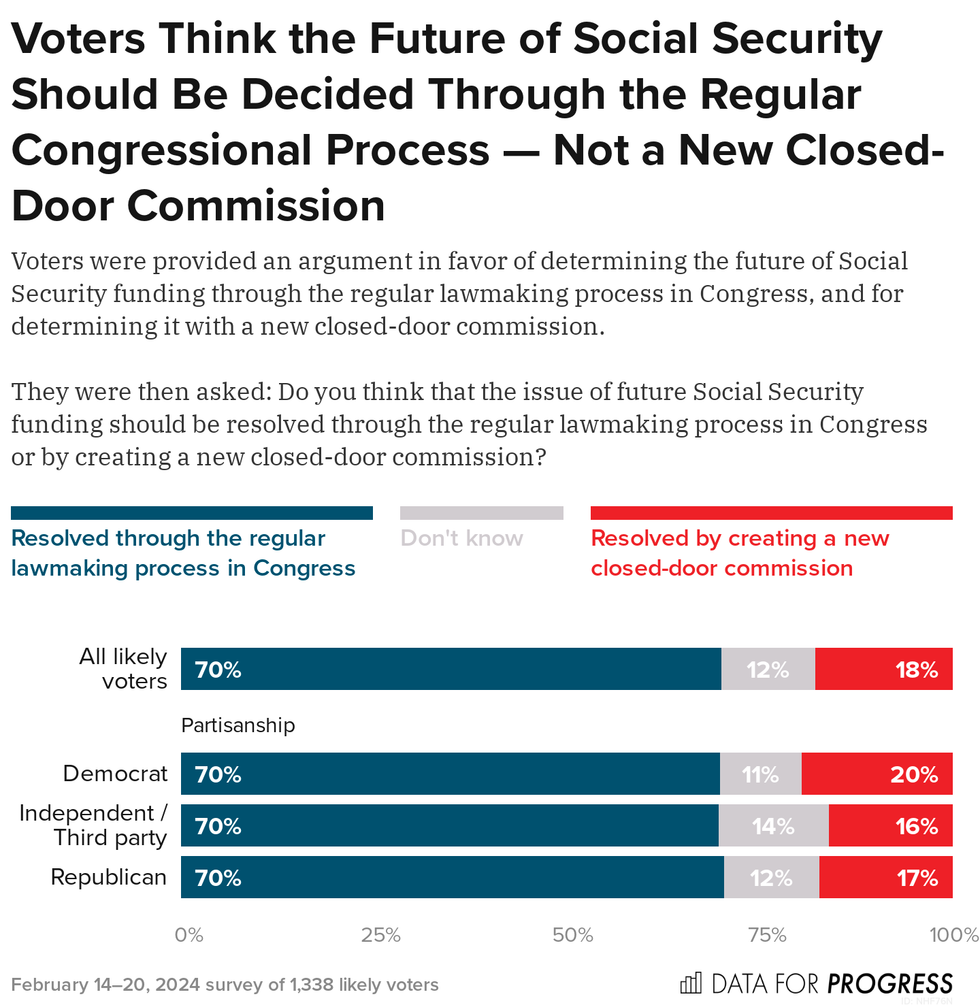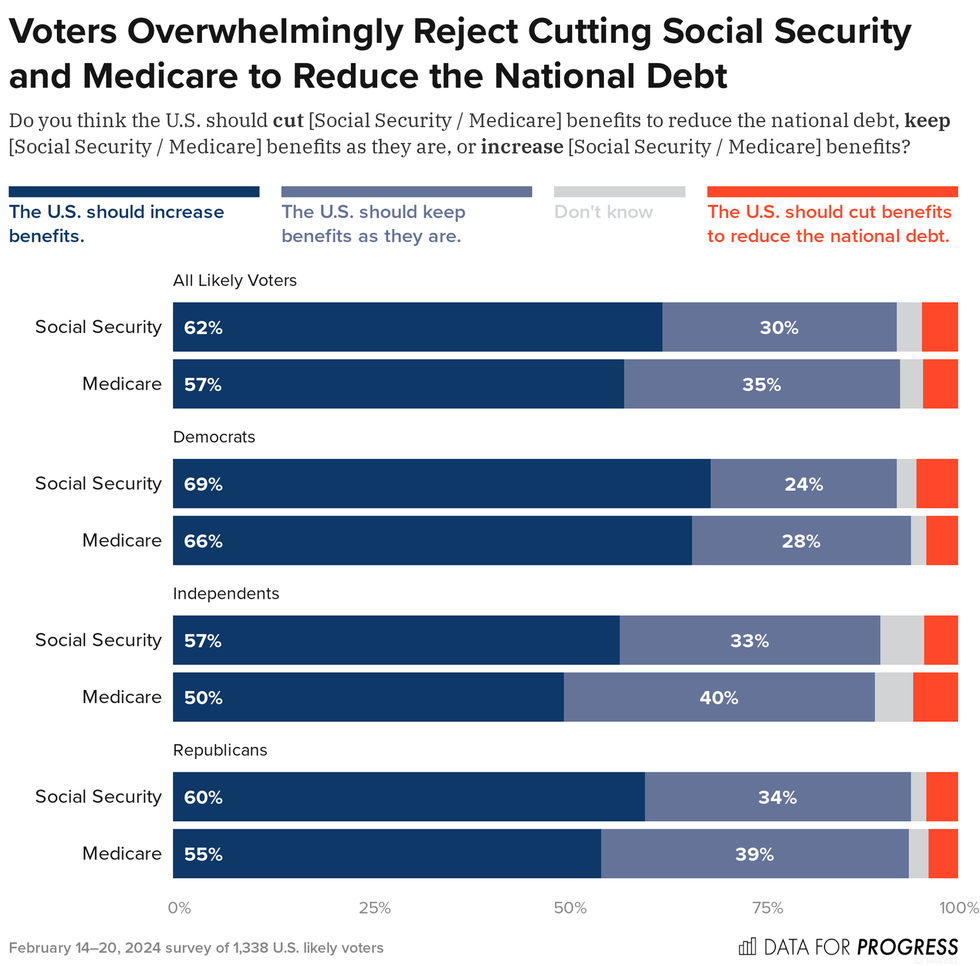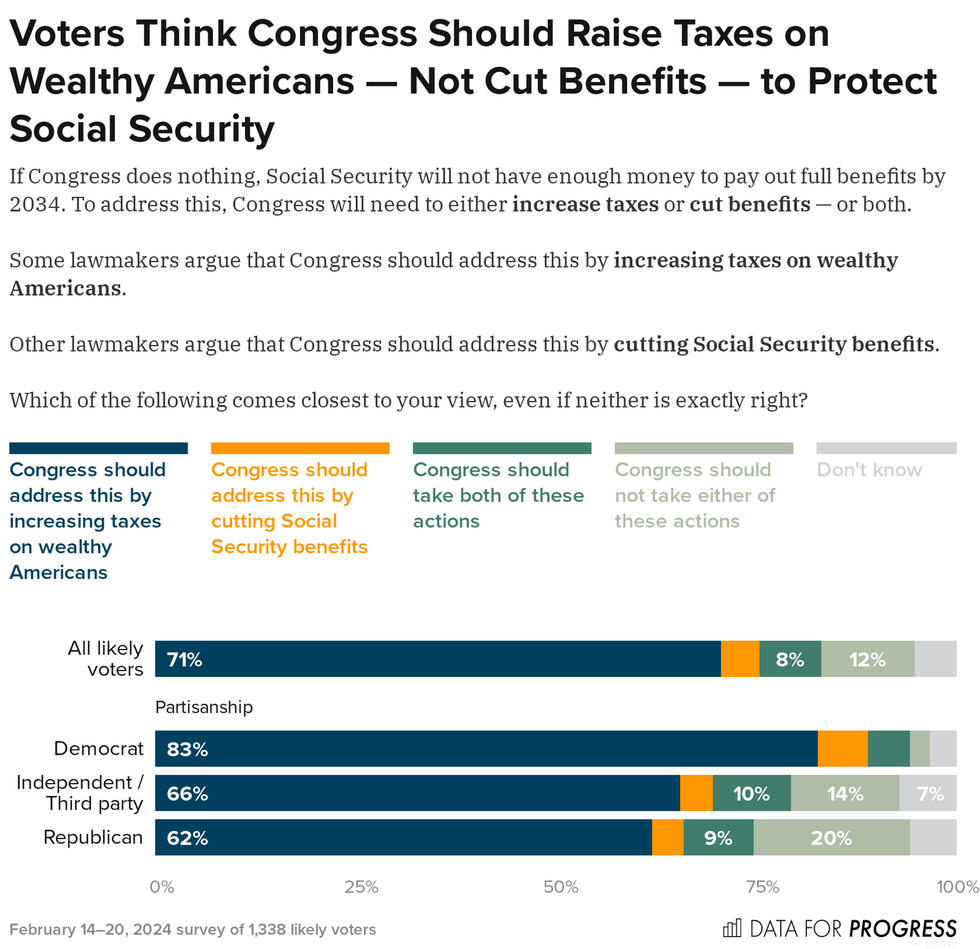When Mike Johnson (R-Louisiana) was elected speaker of the House, he immediately called for a “debt commission” designed to slash Social Security and Medicare behind closed doors.
In January, the House Budget Committee approved a bill to create such a commission, with every Republican voting in favor. During the committee’s mark-up of the bill, Democrats offered amendments to protect Social Security and Medicare, which Republicans immediately voted down. The committee’s chairman, Rep. Jodey Arrington (R-TX), has openly discussed plans to have Congress pass the commission into law as part of a must-pass government funding bill.
This is not just idle talk from Johnson, Arrington, and their fellow congressional Republicans. It is an existential threat to Social Security and Medicare. Any cuts to these programs would be fast-tracked with no opportunity for amendment, and could be voted on in the lame-duck Congress, including by those who had just been defeated or were retiring. It is as undemocratic as it can get, designed to exclude any meaningful input from the American people.
Two major government funding deadlines are approaching in March. If Republicans get their way by leveraging these deadlines to force through a commission, they will do so against the will of the American people — including their own voters.
In the words of White House spokesman Andrew Bates: “The House GOP is now threatening to single-handedly shut the American government down unless they can jam a death panel for Medicare and Social Security down the country's throat.”
New polling from Data for Progress shows that voters across party lines reject a commission designed to cut government spending, including Social Security and Medicare. Seventy percent of voters, including 71% of Republican voters, oppose the idea.

Furthermore, 70% of voters think the future of Social Security should be decided through the regular lawmaking process in Congress, not through a new closed-door commission. That is the way changes to Social Security have always happened in the past. Even the Greenspan Commission of the 1980s (on which one of us, Nancy Altman, served as staff) only issued recommendations. Unlike the commission Republicans are currently trying to pass, it did not have any force of law.

This commission is designed to give a small group of lawmakers, along with unelected “experts,” the power to craft and vote on a plan for Social Security’s future. What is the purpose of such an undemocratic process? To do what the American people don’t want: cut their Social Security and Medicare.
The new Data for Progress polling shows that 92 percent of voters, and 94 percent of Republican voters, reject the idea of cutting Social Security to reduce the national debt. Yet that’s what Republican politicians want to do.
The facts are clear: Because Social Security is self-funded, it cannot add to the debt or deficit. At the end of 2022, the trust funds actually had $2.83 trillion in reserves.
Yet, under the guise of debt reduction, Republicans have their sights set on slashing Americans’ earned benefits. The Republican Study Committee (RSC), a group of about 75 percent of House Republicans, including Speaker Johnson, proposed a budget plan that makes huge cuts to Social Security. The cuts include raising the full retirement age to 69 and decimating middle class benefits. But tellingly, Republicans haven’t actually held a vote on this budget, because they know how unpopular it is with their own base.
Instead, the Republicans want to go behind closed doors with Democrats and emerge with a plan to cut benefits. That way, both parties will have their fingerprints on the cuts and voters won’t know whom to blame.

Fortunately, Democrats have a better idea: protect and expand Social Security benefits, and pay for it by requiring the wealthiest Americans to contribute their fair share.
Ninety-four percent of Americans contribute to Social Security all year long, but the wealthy stop paying after their first $168,600 in wage income, and they don’t pay in at all on their unearned investment income. That means that someone who makes a million dollars a year is done paying into Social Security for the entire year right around now, the end of February!
One of us, Rep. John Larson (D-CT), has introduced the Social Security 2100 Act, which is cosponsored by nearly 200 House Democrats. This legislation enhances benefits for all beneficiaries for the first time in more than 50 years, and keeps Social Security strong for decades to come. It is fully paid for by requiring the wealthy — those making over $400,000 a year — to contribute into Social Security on more of their income, including unearned investment income.
The best part about the Social Security 2100 Act? There’s no need for a closed-door commission to pass it into law, because it’s what the American people want to do.

Instead of going behind closed doors, Speaker Johnson should be honest with the American people. What Americans need to see is where Congress stands on Social Security. Congressional Republicans’ commission is one idea, but so is Social Security 2100, which enhances benefits and pays for them, something Congress hasn’t done in more than 50 years.
We need to provide the 70 million Americans who pay into the system and rely on these benefits with the security to know it is solvent and working for them — and they deserve a direct answer on how Congress is going to address it. For more than 40 percent of them, Social Security is the only retirement plan they have. That’s why — across party lines — Americans are so adamant about fixing, maintaining, and enhancing Social Security, not cutting their hard-earned benefits.




